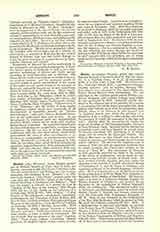

Hewett (alias WELDON), JOHN, English martyr, son of William Hewett of York, date of birth unknown; executed at Mile End Green, October 5, 1588. The two names Hewett and Weldon gave rise to some confusion, and Challoner in his “Memoirs”, in addition to his sketch of “John Hewit”, records under the same date one John Weldon “priest of the College of Douay according to Champney and Molanus”. That but one martyr is referred to is proved by Law in “Martyrs of the Year of the Armada” (The Month, XVI, 3rd ser., 71-85), chiefly on the testimony of a certain tract dated October 24, 1588, entitled: “A True Report of the inditement, arraignment, conviction, condemnation, and Execution of John Weldon, William Hartley, and Robert Sutton; Who suffered for high Treason, in severall places, about the Citie of London, on Saturday the fifth of October, Anno 1588. With the Speeches, which passed between a learned Preacher and them: Faithfullie collected, even in the same wordes, as neere as might be remembred. By one of credit, that was present at the same” (London, 1588). From Caius College, Cambridge, Hewett passed to the English College, Reims, where, in 1583, he received minor Orders. Later he went to England, where he was captured and banished, reaching Reims once more in November, 1585. After his ordination he returned to England, where he was again captured and exiled, early in 1587, to the Netherlands, this time only to fall into the hands of the Earl of Leicester, who arrested him on a false accusation and sent him back to England for trial. In October, 1588, he was formally arraigned on a charge of obtaining ordination from the See of Rome and entering England to exercise the ministry. He was sentenced to death, and the day following was taken through the streets of London to Mile End Green, where before his execution he held disputes with two preachers, one of whom seems to have been the author of the above-mentioned tract.
F. M. RUDGE

